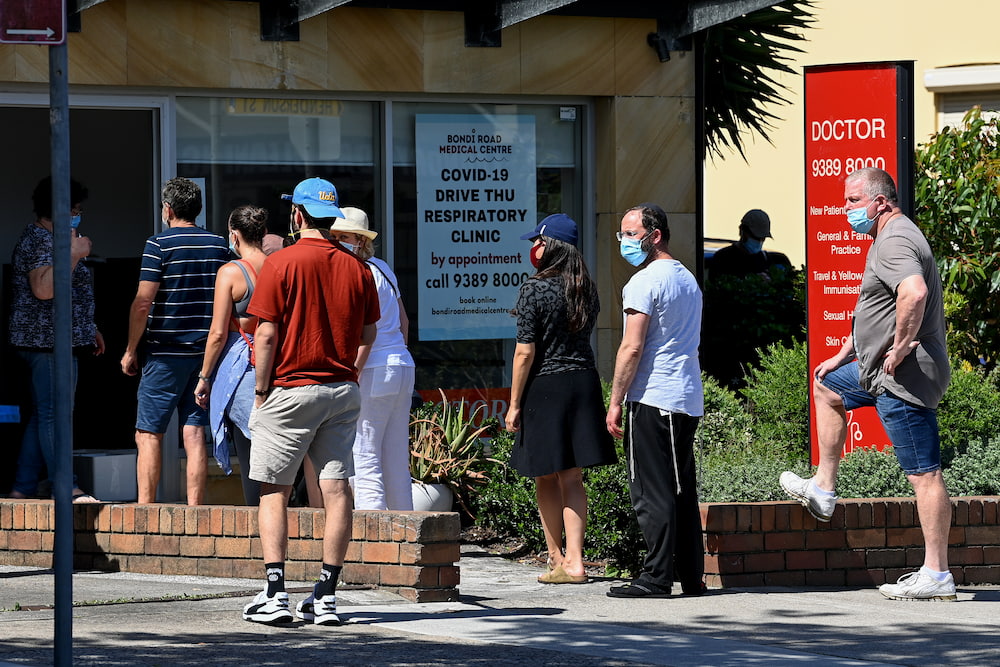NSW has recorded its deadliest day of the pandemic with a young child among 18 new deaths as the number of people hospitalised and seriously ill with COVID-19 continues to climb.
A record of 16 deaths was reported on Sunday, but that number was surpassed 24 hours later when another 18 fatalities were recorded on Monday.
Chief Health Officer Dr Kerry Chant said the child was aged under five, had “significant underlying health conditions” and died at their south-western Sydney home.
Six women and eleven men also died with the virus.
Dr Chant urged people who are unvaccinated, pregnant or have underlying medical conditions not to delay getting a COVID diagnosis and asked everyone to monitor for breathlessness.
“We don’t expect young people to get breathless or dizzy and that’s a sign you really need to escalate your care,” she said.
The number of people hospitalised with the virus in NSW has increased by 103, to 2030.
Of those, 158 are in intensive care – eight more than the day before.
There were also 20,293 new infections reported from 84,333 conventional PCR lab tests. No data is available yet from rapid antigen tests.
Among those who contracted the disease is deputy premier and Nationals leader Paul Toole, who confirmed he tested positive for the virus on Sunday after his whole family became infected.
The true growth of infections across NSW is likely to be far higher, with most people encouraged to take rapid, at-home tests instead of the conventional PCR.
There is no way to report rapid test results in NSW yet, with the system due to come online mid-week, at which point case numbers are expected to surge again.
A further 50 million at-home rapid test kits have been purchased by the state in addition to the 50 million already held in reserve, Premier Dominic Perrottet said on Sunday.
The newly-purchased rapid tests would be a “core part” in getting kids back to school at the end of the month, he said.
While just over 78 per cent of children aged 12 to 15 in NSW have been fully vaccinated, primary school-aged children – those between five and 11 – only became eligible for their first dose on Monday.
With an eight week gap recommended between jabs, very few will be fully vaccinated when classrooms open their doors amid the nation’s biggest outbreak.
That has prompted the Queensland government to delay the return to classrooms by two weeks, to February 7.
Mr Perrottet is adamant NSW will not follow suit.
“There will be challenges as we move through the return-to-school program but ultimately we can’t let perfection be the enemy of good. We need kids back in class.”
Meanwhile, isolation requirements for more close contacts have been scrapped, in an effort to stem the outbreak’s impacts on supply chains.
Shoppers have been faced with empty shelves as the crisis hits supermarkets.
Food logistics and manufacturing staff furloughed as close contacts are now allowed to leave self-isolation to attend work if they have no symptoms.
They also have to wear a mask and comply with risk-management strategies including daily rapid antigen tests.
The new rules apply to critical workers in biosecurity and food safety, the production and manufacturing of food, beverages, groceries, cleaning and sanitary products, and food logistics, delivery and grocery fulfilment.
AAP
Get all the latest Canberra news, sport, entertainment, lifestyle, competitions and more delivered straight to your inbox with the Canberra Daily Daily Newsletter. Sign up here.



